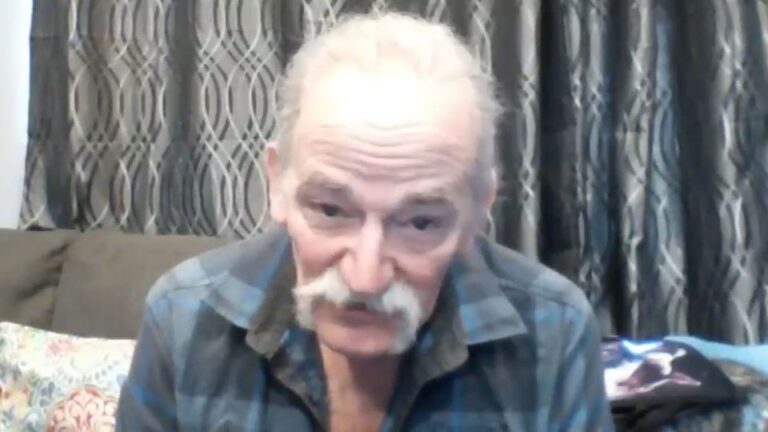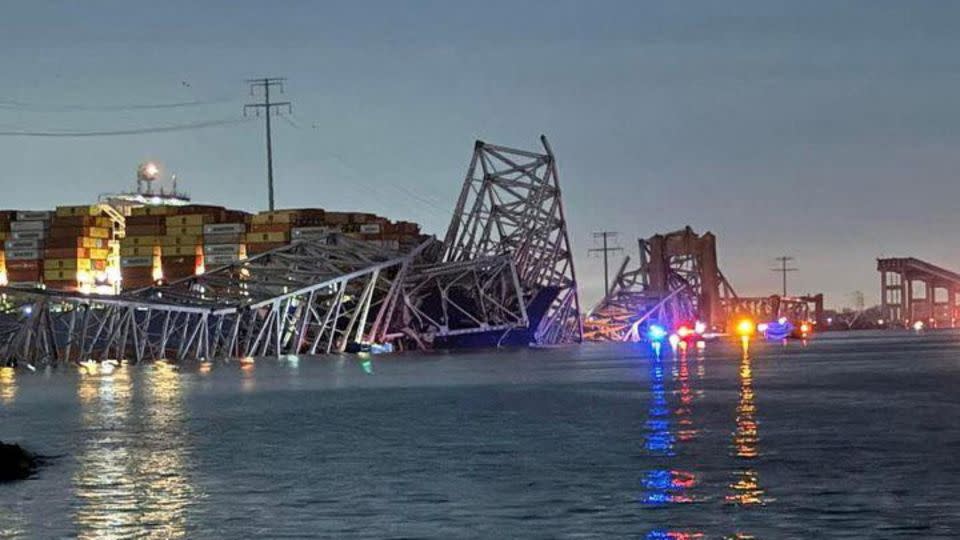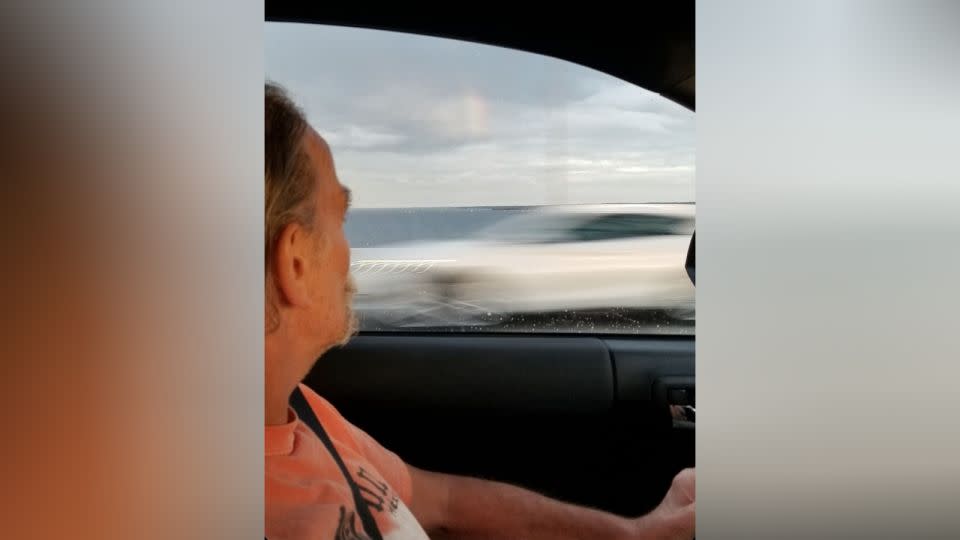
[ad_1]
It was just past 1 a.m. on March 26 and Larry DeSantis was headed to his second job at Herman’s Bakery in the Baltimore area -– the halfway point of another long, but normal, workday.
When a ship collided with the Francis Scott Key Bridge, causing its catastrophic collapse, that day led to a shocking brush with death.
DeSantis says he believes he was one of the last people to get off the bridge before the deadly collision. In an interview with CNN, he recalled his drive across, “focusing on the guys on the bridge” and trying to drive carefully around them, DeSantis told CNN.
“I really didn’t even see the ship at all. I just focused on what was right in front of me.”
The only indication that something was wrong was what DeSantis described as a lack of vehicles, even that early in the morning.
“There was one other vehicle behind me,” he said. “It was a tractor, but he didn’t have a trailer because I actually got in front of him right as we started to go over the bridge.”
Traffic camera video from the final five minutes before the collision shows a vehicle that could match DeSantis’ vehicle and timing with what appears to be a trailer-less truck following, though the video is not entirely clear.
Only six more cars went through that lane before the 984-foot container ship struck one of the bridge’s pillars at 1:29 a.m.
The collapse sent vehicles and people into the frigid Patapsco River. Six workers who were repairing potholes on the bridge were reported missing in the aftermath; two of their bodies have since been recovered. The other four are presumed dead.
“If I had stopped and talked to somebody, my coworker for a minute, I probably wouldn’t be here today,” DeSantis said.
Minutes after passing over the bridge, DeSantis’ other workplace called to check on him.
“Someone called me like maybe two minutes later and said, ‘Where are you at?’ That was my other job calling,” he said. “I said I just went over the bridge, and they said ‘Well, you know, the bridge just collapsed.’”

DeSantis said he couldn’t believe what he was hearing.
Once he had gotten to work, he said a coworker told him, “‘I’m glad to see your truck was out there,’ because they thought maybe I might have been on that bridge at the time.”
He nearly was.

“I’ve been very tired this week because of the amount of hours I’ve been working, but it makes you think a lot, it really does,” he said. “I just can’t believe it happened. I consider myself very lucky.”
DeSantis has been in the Baltimore area his entire life and remembers only one other time where he looked out toward the Patapsco River and didn’t see the bridge: “I remember when they were building it,” he said.
The Francis Scott Key opened in 1977 and served 30,000 Marylanders each day. The port – the ninth largest in the US for international cargo – is now blocked by debris. Ships are still able to move through the Port of Baltimore, which handled $80.8 billion worth of foreign cargo in 2023, according to the state government — but larger cargo items will have to wait until the bridge debris is cleared.
As debris removal began over the weekend, officials said they were preparing to open a temporary alternate channel that will allow commercially essential vessels to reach the port.
“By opening this alternate route, we will support the flow of marine traffic into Baltimore,” Capt. David O’Connell, federal on-scene coordinator for the bridge collapse response, said in a news release Sunday.
Now, when DeSantis looks out and sees the river at where the landmark used to stand, he shares the sentiment of many fellow Marylanders.
“It’s hard to believe it’s gone.”
CNN’s Zoe Sottile contributed to this report.
For more CNN news and newsletters create an account at CNN.com
[ad_2]